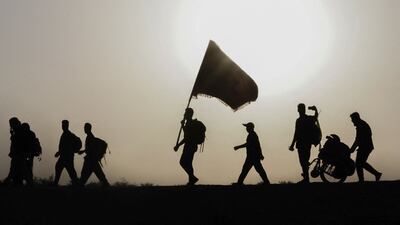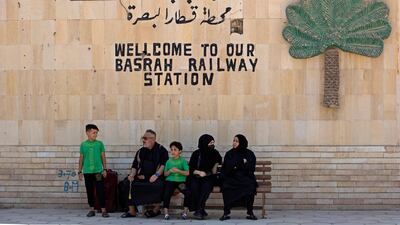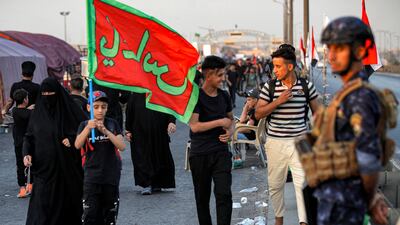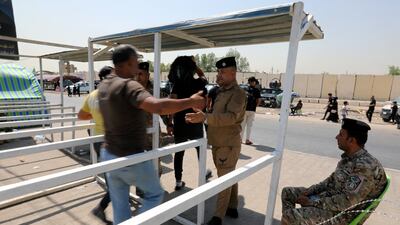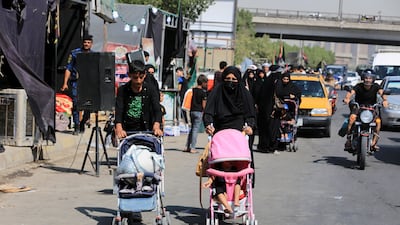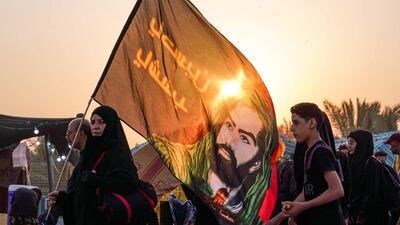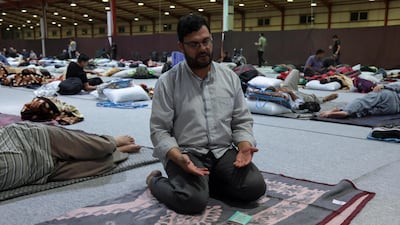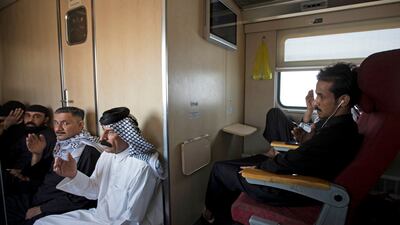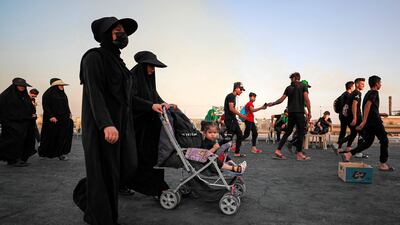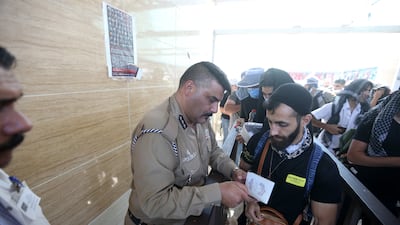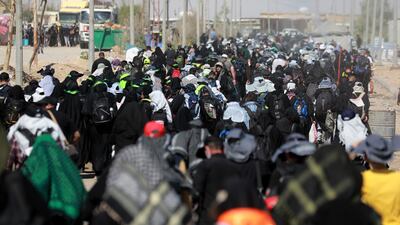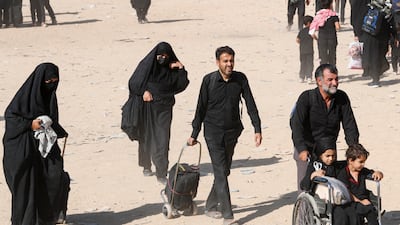The influx of Shiite pilgrims in the Iraqi city of Karbala, many from outside the country, has helped businesses to recover after a three-year slump caused by social unrest and the Covid-19 pandemic.
The pilgrimage, known as Arbaeen, marks the end of a 40-day mourning period for the Prophet Mohammed's grandson Imam Hussein, who was killed in battle at Karbala in the seventh century.
Millions of pilgrims walk from Shiite-dominated areas in the central and southern parts of Iraq as they head to Karbala to visit the gold-domed shrines of Imam Hussein and his brother Imam Abbas.
Foreign pilgrims, mainly Iranians, join them on that journey.
“The numbers this year are bigger than what we expected,” Azhar Al Kalash, owner of two hotels in Karbala, told The National. “Pilgrims are streaming in big numbers.”
The pandemic and violence linked to the 2019 pro-reform protests, which began in major cities in central and southern Iraq, kept foreign pilgrims away from Karbala.
Last year, Iraq eased travel restrictions and allowed 80,000 foreign pilgrims to enter the country, the majority of them Iranian. There are no limits this year.
Mr Al Kalash’s two hotels felt the pinch as occupancy rates dropped sharply before recovering last year to reach about 50 per cent of the levels before the pandemic.

“This year, the occupancy rate jumped to 100 per cent in the two hotels and we even offered more beds above the 380-bed capacity,” he said.
“The pilgrims thirst for this pilgrimage after all these years. A big religious festival is taking place now in Karbala. This is the first time to see such turnout.”
About 2.8 million foreign pilgrims entered Iraq between July 31 and September 12, the Commission of Border Crossing Points said on Wednesday.
The number of Iranian pilgrims is expected to reach five million, with Karbala set for a record turnout of more than 20 million this year. The pilgrimage comes to an end on Saturday.

Unlike in previous years, pilgrims began to enter the city at the end of August, Mohammed Al Hir, the head of the hotels' association in Karbala, told The National.
All 1,200 hotels and licensed residences in the city are fully booked, he said.
“This year, we are seeing an exceptional increase in the number of pilgrims due to their longing for being in Karbala again,” he said.
The high number of Iranian pilgrims has prompted Tehran to shut the country's border crossings from time to time to control the flow. Iran has also advised its citizens not to stay for long in Iraq as it seeks to ease pressure at border posts.
To cope with the rising numbers, provincial authorities in Karbala have opened schools, mosques and unfinished buildings to accommodate pilgrims, while some families have offered to host them in their own homes.

That influx has put more pressure on the dilapidated infrastructure and public services, which have been affected by decades of conflict, neglect and endemic corruption.
The city is struggling with a severe water and electricity crisis, with disruptions lasting up to 24 hours, Mr Al Kalash said.
More than a dozen Iranian pilgrims have lost their lives in car accidents on roads full of potholes, with the lack of power exacerbating the situation as motorways are plunged into darkness at night.
Along all the roads leading to Karbala, volunteers are offering pilgrims free food and drinks, as well as massages for those in pain. Others spray water on pilgrims to help them cool down under the scorching sun.
Thousands of pilgrims are sleeping on the streets, near the ornately decorated shrines.

Ameer Bashir, who owns a tiny souvenir shop opposite the shrines, said he was happy to see foreign pilgrims return to his home town.
The government's decision to remove limits on pilgrim numbers encouraged Mr Bashir to buy more stock for this year.
Before the start of the pilgrimage, he ordered silver jewellery, prayer beads, rugs, shrouds, watches and mobile phone accessories worth $14,000. He spent $4,000 last year.
The shop is open 24 hours a day and Mr Bashir and his brother have hired two workers. Sales are up by as much as 70 per cent, compared with last year.
“The atmosphere is amazing and business is doing well, like in the old days,” he said.
